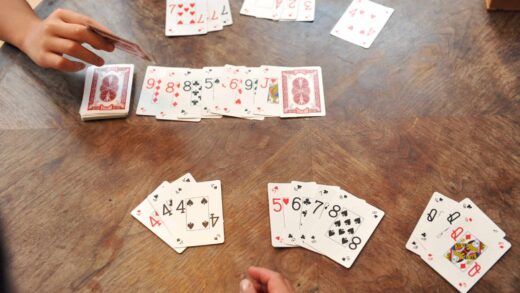Helping toddlers develop focus and concentration at an early age can positively impact their overall learning journey. One of the simplest and most effective ways to build these skills is through matching games for toddlers.
These games aren’t just fun—they also support visual learning, pattern recognition, memory, and cognitive development in an engaging and age-appropriate way.
Whether you’re a parent, teacher, or caregiver, choosing the right matching games can enhance mental agility while keeping toddlers happily entertained.
Why Matching Games Are Great for Toddlers
Toddlers are naturally curious and love to explore their world through play. Matching games introduce structure and strategy in a way that aligns with their developmental stage. Here’s why they’re so effective:
- Boosts Concentration: Matching activities require attention and focus, which strengthens the brain’s ability to concentrate for longer periods.
- Enhances Visual Discrimination: Toddlers learn to observe details, such as shapes, colors, and patterns—key elements of visual learning.
- Supports Early Memory Development: Many matching games are also memory games for 2–4 year olds, which sharpen recall skills.
- Builds Language and Communication: Talking about the matches (“This is a red apple; can you find another one?”) promotes vocabulary and verbal expression.
Best Matching Games for Toddlers to Boost Focus and Learning
1. Classic Picture Card Matching
Simple picture matching cards featuring animals, food, or household items are perfect for ages 2–4. The game involves flipping cards and finding pairs that match.
Why It Works:
It introduces young kids to basic categorization and helps them develop memory by recalling card locations.
Tips:
Start with fewer pairs and gradually increase as your toddler improves.
2. Color and Shape Matching Boards
These are often wooden or foam boards with cut-outs for different shapes and colors. Children match items based on their visual features.
Skills Developed:
Color identification, shape recognition, hand-eye coordination
Bonus:
These tactile games are excellent for kids who learn better through touch and movement.
3. Memory Flip Games
Also known as “Concentration,” this game uses cards that are laid face down. Players flip two cards per turn to find a matching pair.
Why It’s Great for Toddlers:
It sharpens short-term memory, patience, and turn-taking—ideal for developing both mental and social skills.
Simplify It:
Use fewer pairs or themed sets (like dinosaurs or farm animals) to hold your toddler’s interest.
4. Matching Household Items Game
Turn daily objects into a matching game. Collect pairs of socks, cups, or spoons and ask your toddler to match them.
Practical Advantage:
No special equipment needed—just everyday items and a few minutes of focused play.
Why It Matters:
This encourages independence and helps toddlers apply pattern recognition to real-world situations.
5. Digital Matching Games
Apps and online games designed for toddlers offer colorful, interactive matching activities. Popular choices include PBS Kids, Fisher-Price apps, and Monkey Preschool.
Great For:
Car rides, travel, or screen-time learning under supervision.
Caution:
Limit screen time to recommended guidelines and balance with hands-on play.
6. Animal Sound Matching Game
Use animal toys or cards and play matching animal sounds. Ask your toddler to identify which animal makes that sound and find the pair.
Example:
Play a “moo” sound and let your toddler find both cow toys or cards.
Why It’s Unique:
It strengthens auditory discrimination in addition to visual recognition.
How to Make Matching Games More Engaging
To keep toddlers motivated and curious:
- Use bright, bold images they can relate to (like favorite cartoon characters or animals).
- Offer positive reinforcement (“Great job finding the match!”).
- Switch up the themes regularly to prevent boredom.
- Involve them in DIY game-making—draw pictures together or use magazine cut-outs for a custom game set.
Recommendation
Best Memory Games for Kids Aged 4–8 That Boost Focus
Top Memory Games for 2–5 Year Olds to Boost Early Brain Skills
Top Google Memory Games To Improve Your Memory
8 Games to Improve Memory and Focus in Kids
Best Phonics Games for Kids Aged 4–6 to Build Reading Skills
FAQs
Q1: What age can toddlers start playing matching games?
A1: Children can begin playing basic matching games around age 2. Start with simple picture or color games and adjust difficulty as their skills grow.
Q2: How do matching games benefit toddlers?
A2: They enhance concentration, memory, and visual learning. These games also support vocabulary development and hand-eye coordination.
Q3: Are digital matching games good for toddlers?
A3: Yes, in moderation. Educational apps can be useful tools when used alongside physical activities. Always choose age-appropriate content and limit screen time.
Q4: How long should a toddler play matching games?
A4: Short sessions of 10–15 minutes are ideal. Keep it fun and stop before your toddler becomes tired or frustrated.
Q5: Can I make matching games at home?
A5: Absolutely, Use items like socks, flashcards, or printed images. DIY games are cost-effective and can be customized to suit your child’s interests.
Final Thoughts
Matching games provide an enriching way to build foundational skills in toddlers. Whether you’re looking for screen-free fun or engaging digital options, the right matching games for toddlers can make early learning an enjoyable and rewarding experience.
With these options, you’ll be boosting your child’s focus, memory, and visual learning skills—all through the power of play.



